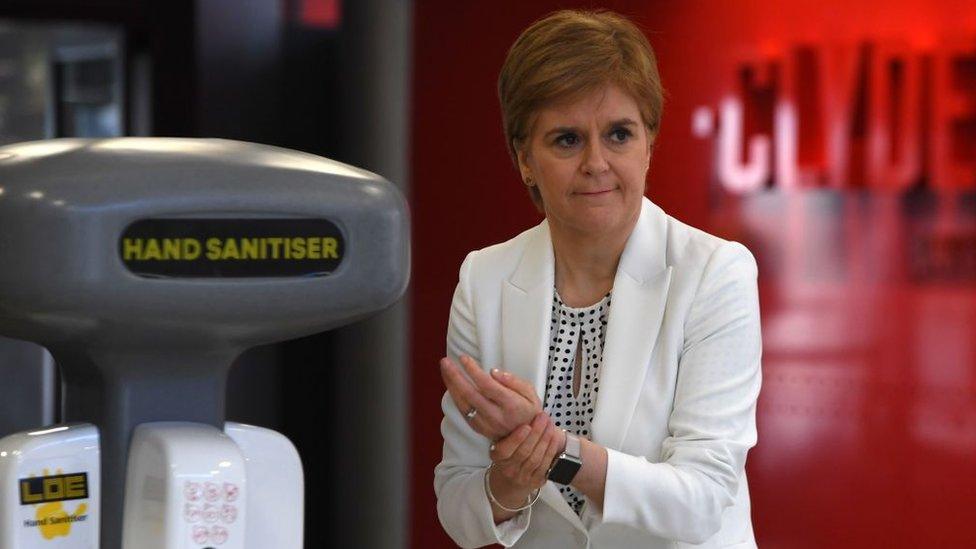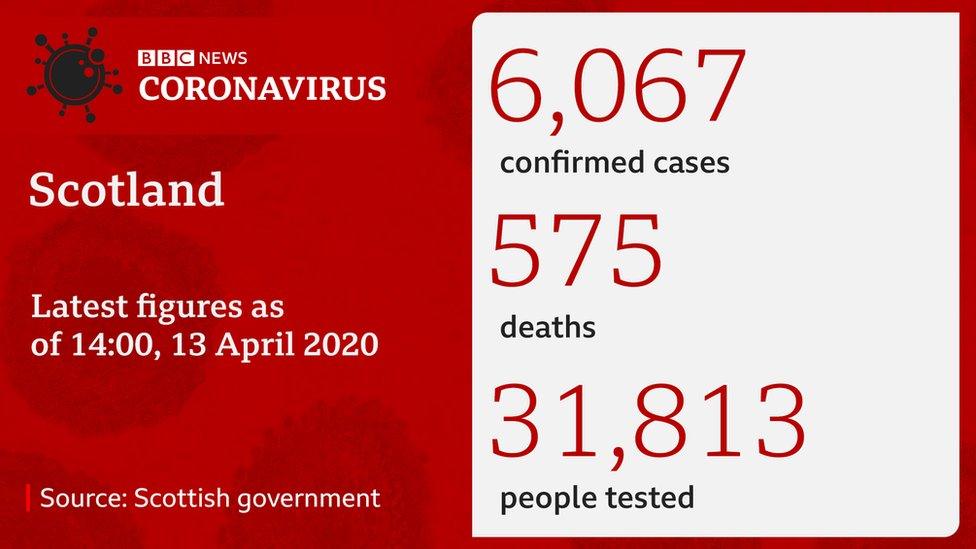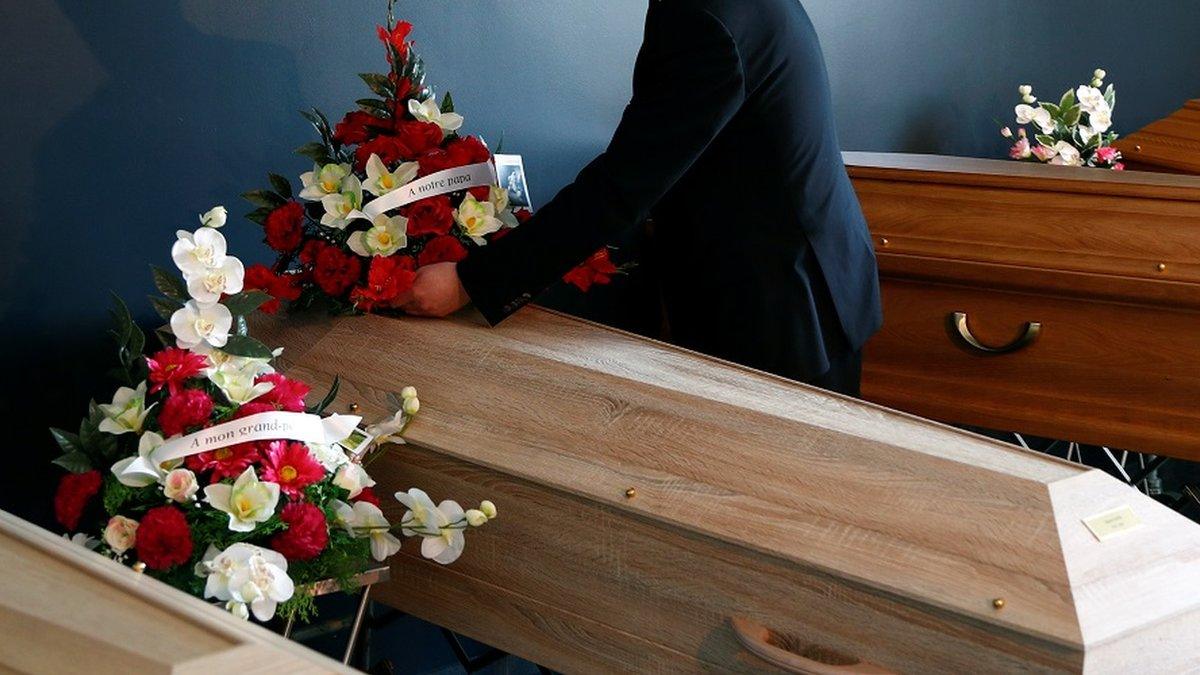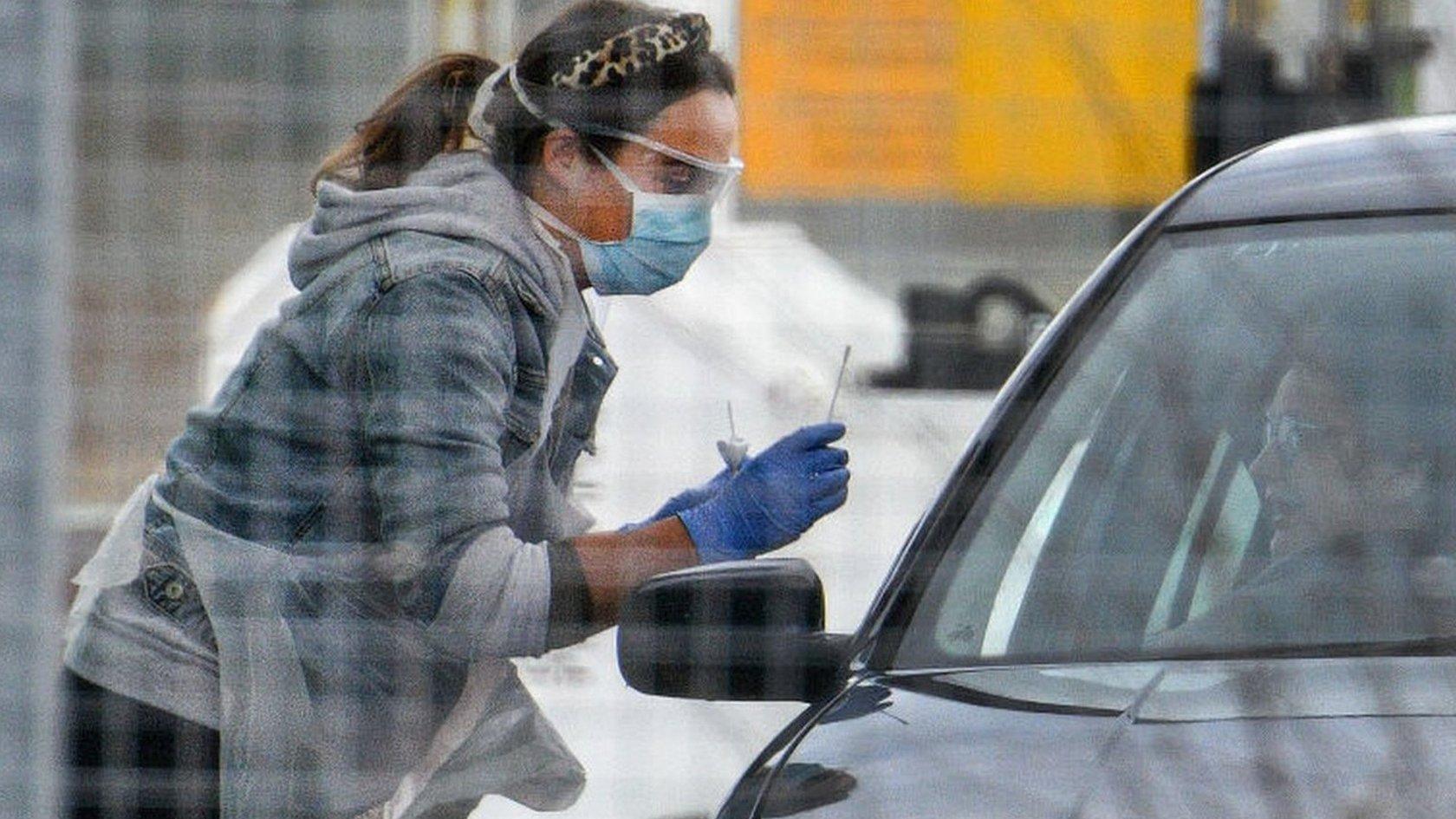Sturgeon: Coronavirus lockdown 'unlikely to be lifted' soon
- Published

Nicola Sturgeon hosted her Easter Monday briefing as the fourth week of lockdown gets under way
Scotland's coronavirus lockdown is not likely to be lifted "in the very near future", Nicola Sturgeon has said.
The first minister said there were "early optimistic signs" that social distancing measures were having an impact on the spread of the virus.
But she said that "until we know more and have solid evidence, we must stick with it".
She said the lockdown would not be in place "for a single minute longer than necessary", but it remains "essential".
Interim chief medical officer Dr Gregor Smith also said the lockdown measures were expected to remain in place for a "significant period of time".
Ms Sturgeon said a total of 6,076 Scots had now tested positive for coronavirus, although she stressed that this would be an under-estimate and did not include figures from some local laboratories.
She said there were 1,797 patients in hospital, 211 of whom are in intensive care.
And a further nine people have died after testing positive for the virus, bringing the total figure to 575.
However, Ms Sturgeon stressed a "note of caution" around the figures, as they only include hospital deaths where patients have recorded a positive test and there tends to be a reporting lag over the weekends.
More detailed figures including deaths in care homes and other settings - and those where coronavirus is a "suspected" cause - will be released on Wednesday.

By law, the UK's lockdown restrictions have to be reviewed every 21 days, and are set to be looked at this week.
However, Ms Sturgeon said there was no prospect of them being lifted in the short term.
She said: "I want to be very clear, so nobody is under any illusions - that review is not likely to result in these restrictions being lifted in the very near future.
"There are early optimistic signs that the steps we are taking are working, but until we know more and have solid evidence, we must stick with it."
Stressing that the stringent measures remain "essential", the first minister added: "They will not be in force for a single minute longer than necessary, but if we lift them too early or do so without thinking through properly how we can ease them while still keeping the virus under control, then we risk it spreading out of control, risk it overwhelming our NHS and risk it taking many more lives."

Analysis by BBC Scotland's David Henderson
Dr Gregor Smith: "It is very important that people do not delay funerals of their loved ones."
The traditional Easter message is one of rebirth and renewal. The message from the Scottish government, embroiled as it is in the country's biggest crisis in decades, can't be so uplifting. "Don't delay funerals" was the grim theme of what the interim chief medical officer had to say.
Some families, it seems, may want to delay holding a service until the government lifts strict limits of how many family and friends can attend. It underlines how the virus - and the lockdown - impact on everyone's lives.
The first minister made it clear there'll be a review of restrictions this week - but they're not likely to be lifted in the very near future. The key goal, she said, was saving lives.
What then of an exit strategy from the lockdown? On this too, there was caution - a need to wait and see how lifting controls might work - or backfire - in other European countries. Nicola Sturgeon said the more consistency across the UK the better, when restrictions are eased. But if Scotland has to take a different approach for practical reasons, she's happy to do so.

Ms Sturgeon said "we need to understand a bit more than we do now about the impact these measures have had" before consideration is given to lifting them.
She said that "the virus may not have gone away", and that having repressed it there was a danger that it could start to spread again after restrictions are lifted.
The first minister said that when measures are eased, the country could "effectively go back into a contain strategy" where the virus is kept in check via "testing, tracing, and isolating".
Dr Smith said there was "real interest" in developing a new app to help trace people who may have the virus, and said it "looks very promising" as a way of tracking cases - although he said it would be linked to "traditional methods of contact tracing".
Ms Sturgeon said when this happened in different parts of the UK would depend on the evidence, "not a point of constitutional ideology either way". She said "simplicity of messaging" might make it easier to maintain a "consistent" approach across the whole UK, but said if the evidence showed different timescales or approaches should be used in Scotland then "we will not hesitate to do that".
- Published13 April 2020

- Published7 April 2020
